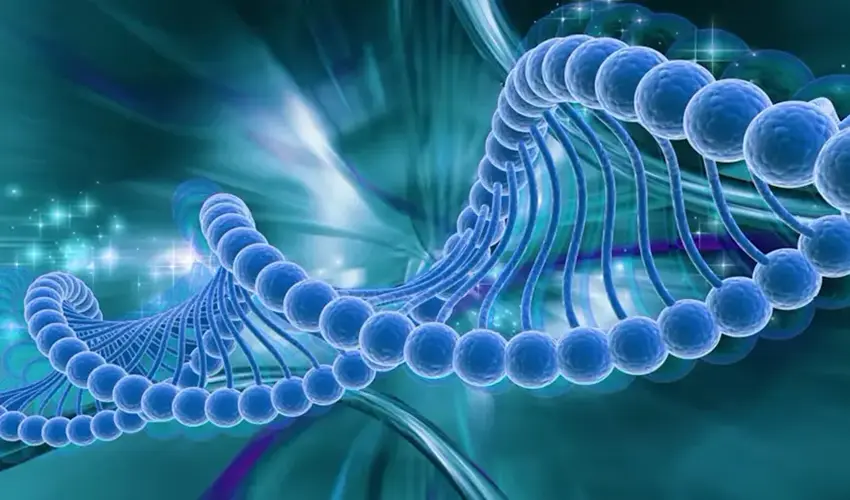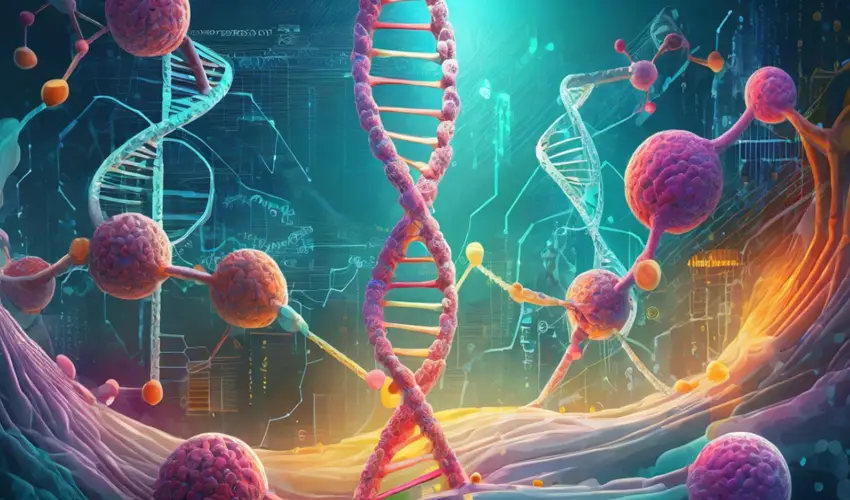DNA, also known as deoxyribonucleic acid is a type of polymer that holds the information necessary to construct and sustain all the bodily functions. DNA is found in every cell of the body. It is the blueprint of an individual as it holds all the information required to make other cellular components like RNA molecules and proteins. Furthermore, there are sections of DNA that contain genetic information, also known as genes. The genetic information constitutes the family tree and is often able to determine if a person is at risk of developing certain ailments. This is where DNA testing comes in.
Genetic testing, also known as DNA testing, can be utilized for diagnosing genetic disorders, determining genetic mutations, as well as the examination of the risk of genetic disorders.
As an example, the likelihood of developing breast cancer and ovarian cancer rises the more there are mutations within genes like the BRCA1 or BRCA2 genes. When these genes are studied by a genetic test it will be possible to determine if someone is at risk of developing these illnesses.
Why should we do DNA testing?

In addition to identifying potential genetic diseases There are many reasons to have your DNA test. These include:
Learning about your ethnicity
Many of us are inclined to think about our ethnicity or ancestry. Things like “Where did I come from?”, “Am I partly Italian?”, or “Do I have Irish genes?” These questions can come up in our minds.
The best way to find those answers easy: get a DNA test. Through a DNA test anyone can determine the roots of their family’s ethnicity, going back nearly 500 to 1000 years, and possibly more. This is accomplished by comparing the DNAs of different regions of the globe. Following the comparison it is estimated as of the region that the DNA is matched to. The estimation is typically determined by the DNA research and genetic database of the firm that conducts the DNA test.
Untangling the Roots of Family Trees
The DNA tests can assist one to find out how their families are related to them. A combination of DNA tests and the family tree can help us answer questions about who we truly are. Every person inherits DNA in a different way. 50% of DNA is passed down from the mother, while the remaining 50 percent is inherited of it is inherited from father.
This is the reason why the outcome are unique for every person which is why even siblings do not have the identical collection of DNA payoff. Therefore the DNA test could aid in finding long-lost relatives or possibly distant family members. Numerous DNA test providers offer online tools for families which allow users to create their family tree on their own or connect with others that match their genetic makeup.
Leaving a Legacy Behind
One of the smartest financial decisions anyone can make is to leave the will. The will warrant that the will passes onto family heirlooms as well as financial assets to their family and their descendants. In addition to an actual legacy it’s also possible to pass the payoff of a genealogical test following death.
It is possible for the outcome of a DNA test to be saved in one of the major databases of DNA testing sites. This lets any person with matching genes to connect with someone else with a DNA match. People from different times and geographic places can join with each other to create an extended tree of family, or even to find out about their own ethnicity.
Establishing a Paternity
In addition to establishing one’s own family tree and revealing one’s ethnicity and educating people about the possibility of inheriting a medical condition The test is frequently used to determine paternity. This is usually utilized in situations of obtaining child support or that involve visits to children. Paternity tests can also be conducted to determine parentage in the case of immigration or adoption. Because DNA is a mixture of the parents of an individual DNA, the genetic structure could be used to calculate an individual’s parental lineage, to almost 99.9 percent chance.
How is DNA testing done?
Genetic testing is usually performed in conjunction with the genetic consultation. The test is requested from a geneticist in a hospital physician, primary care physician or nurse practitioner. The test is performed by examining a small amount of skin saliva, hair and amniotic fluid, blood as well as other tissues. The most popular ways to obtain an DNA sample is to use cheek smear tests, also known as buccal or cheek smear. This is done by together either a cotton swab, or a small-sized brush to collect the cells that are on within the surface of your cheek.
The sample is then sent to a lab to test for specific modifications in DNA, proteins and the chromosomes. The tests are performed in accordance with the genetic disorder that the patient is believed to have. In certain cases the tests can be performed when it is unclear the genetic mutation that an individual may be suffering from. Before taking any genetic test, it’s crucial to get informed consent.
Benefits of DNA Testing
One of the advantages for DNA tests is the fact that they gives an opportunity to see the present, past as well as the future of health. This is a powerful way of maintaining one’s overall health. Today, DNA testing is easy thanks to the increase in genetic labs everywhere. You just need to purchase an online kit from a laboratory that provides DNA tests.
After a DNA sample has been taken and sent to the laboratory, the outcome are expected to be delivered within a couple of weeks. The outcome are a great way to reap the advantages of testing DNA that range from understanding the ancestry of a person to their health. From a health standpoint it is essential to keep in mind that DNA testing can be advantageous only when the outcome are communicated to an expert medical well-qualified with knowledge of genetics.
Conclusion
DNA testing has grown into a potent instrument that provides information about the health of our ancestors, our health and our family tree. You may be curious about your family’s ethnicity, trying for potential genetic diseases or trying to establish paternity testing, DNA tests could add valuable details. While it’s not difficult to go through DNA tests, knowing results outcome and acting upon the payoff in conjunction with medical professionals is vital to maximize the advantages. Thanks to the ease of DNA tests in the present and the ability to learn about your genetic profile is never easier or more crucial in determining your health.







